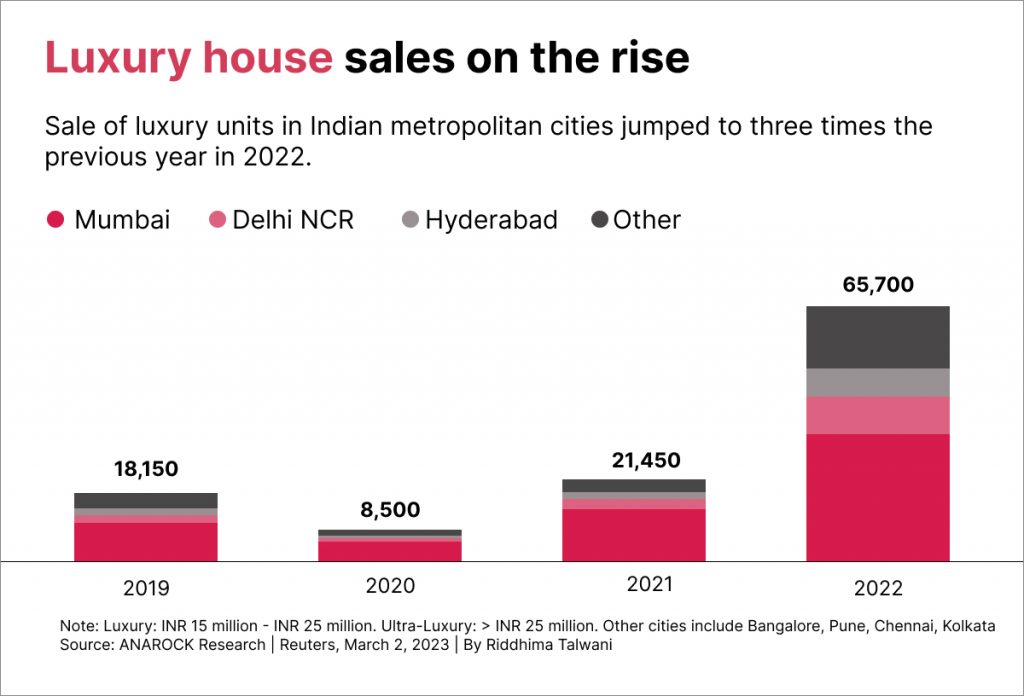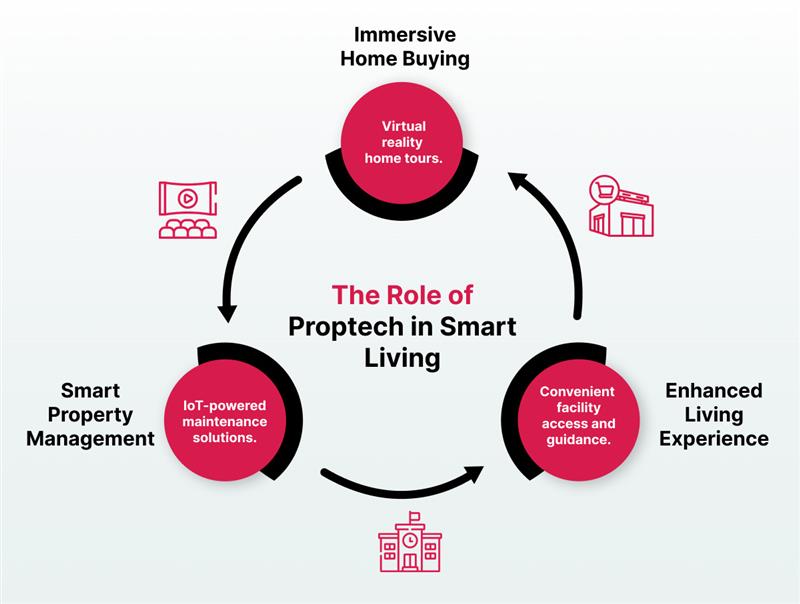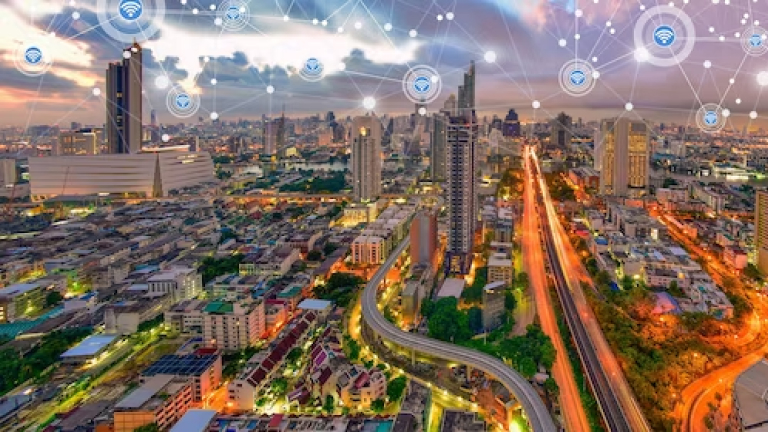Smart destinations- locations using innovative solutions to enhance tourism, have become the preferred choice for travelers worldwide, offering sustainable development within their local ecosystem, elevating the overall travel experience. With the examples set by Tequila (Latin America), Sindalah (Saudi Arabia), El Hierro (Spain), the idea of smart living or tourism as a planned area of economic activity seems to be taking root.
Travelers flock to these destinations as they have all the landmarks of smart living which forward-looking generations aspire for. These smart communities typically include:
- State-of-the-art technological infrastructure
- Digital/mobile access to healthcare, police, and other emergency services
- Real-time data on vehicle flows, traffic, public transportation situations.
- Self-sufficiency with their energy needs
- Top-notch connectivity and free Wi-Fi in public places
- Alternatives like electric mobility in public transport as opposed to traditional private options.
- Integration and ease of engagement for newcomers/tourists with the community.
- Advocacy of ecological and sustainable tourism
What is really striking about smart communities is how they rely on digitalization and innovative solutions to embed such sustainable practices.
The need for smart living
Given the current state of the world, every destination holds the potential to embody smart living, meeting the preferences of tech-savvy and eco-conscious individuals who prioritize experience, efficiency, and sustainability. The rising trend of working from home has intensified the demand for smart living spaces that offer a home/office environment within the apartment complex, catering to the needs of the target audience seeking comfort and amenities.
This trend coincides with the increased interest in luxury housing, which is set to make a comeback in countries like India. News of real-estate majors like Godrej Properties inviting select clients to view their premium luxury apartments and DLF making a billion-dollar landmark sale of their upmarket residences in 72 hours are signaling an enormous interest in this space.

The surge in demand for larger residential complexes with exclusive amenities is fueled by people’s shift towards more sustainable lifestyles and home office setups, emerging from the 2019 economic slowdown and the pandemic, especially in congested metros. Eager for greener, wider spaces, individuals are willing to invest significantly to enjoy a range of facilities like spas, gyms, play areas, heated pools, extensive parking, and round-the-clock concierge and housekeeping services.
On digging deeper, however, we also see a greater hankering for robust, sustainable infrastructure, healthcare, mobility and transportation, governance, and other citizen-centric services, which many cities around the world are struggling to provide. These are the kind of conditions and conveniences that improve the livability of a city, and smart living city planners promise to provide.
What makes living smart?
Property developers now heavily rely on advanced technologies, known as Proptech to establish a robust digital ecosystem, forming the foundation of smart communities/cities that facilitate self-managed, intelligent and smart living. For instance, smart homes can be redefined with increased use of connected devices, AI, and other advanced technologies.
It could be in the form of products, websites, and mobile apps that help simplify and modernize various areas of real estate from developing, browsing to buying. It can also extend to smart buildings, space management, and architecture.
The role of proptech in smart living
Given the discussed market trends, property builders and urban developers are increasingly investing in smart living projects , such as the 15-minute city concept (where work, home, shops, entertainment, education, and healthcare are all available by foot or bicycle within the same time-span that a commuter would have typically waited for a subway train) and Saudi Arabia’s Project Neom, the first-ever cognitive city.
Such projects are getting global approval for their tremendous potential in enabling environmentally friendly, sustainable, health-enhancing choices that will be central to urban spatial conditions in the future.

In these projects, proptech can play a bigger role in the revival of the luxury housing market.
- Smartening property management: Maintenance and management apps etc. will come in handy as multi-family real estate is a focus area of growth. The use of IoT devices in smart buildings and vehicles will further enhance property management and maintenance. For example, a sensor-based system integrated with IoT could be used to detect leaks and quickly fix water pipelines anywhere within the property.
- Making buying more immersive: The integration of virtual and augmented reality technologies can help produce virtual tours of their prospective homes that offer a more immersive experience for potential buyers.
- Enhancing the living experience for residents and tourists: Residents can utilize the community’s IoT-driven, AI-based apps to conveniently check gym and swimming pool occupancy and find suitable slots, while also determining the best time for outdoor play in areas with poor air quality. These apps can further extend to services like grocery shopping, emergency assistance, and healthcare.
These are some micro changes that can be made using a digital backbone to bring about macro differences to the quality of daily life.
Making smart living a continuous reality
Proptech has an even bigger role to play at the macro level. Sustainable development and equal accessibility are the hallmarks of smart cities, and state-of-the-art technological infrastructure holds the key.
City planners and developers can create a comprehensive super-app encompassing a range of eco-friendly tools and mobile apps, offering a one-stop solution for various government-related services such as passport applications, name changes, and driving license renewals, all accessible through a single touchpoint for enhanced ease and convenience.
A super-app for smart living can be built on these lines:
- A government-issued unique number for each resident: Enabling digital access to smart city services and departments. For example, it would enable them to quickly buy over-the-counter medicines, get health checkups and diagnostics or other healthcare services and then track that service using the unique number.
- Dedicated electronic wallet: To maintain vaccination records, medical information and essential documents like driving license, PAN etc. in a digital format.
- Government-authorized storage space: Offering secure upload, storage, and access for residents’ documents with proper authentication.
- A public support center for digital bills payment: This includes electricity, gas supply, and water bills owed to the government. The mobile app provides all consumption details, making the process digital and eliminating the inconvenience of visiting multiple offices or enduring lengthy queues.
- Apps for public transport with a single digital pass: The app covers all transport modes in the city and enables contactless payments. It offers real-time tracking of buses and taxis for travelers, while authorities gain valuable data-based insights to track congestion points and areas in need of improvement.
- App for city-related lifestyle and entertainment activities: Allowing users to find interesting events, book tickets, send money, avail promo codes and more.
From smart city to smart destination
These services will help digitally connect and cater to different nerve centers of a city, which are crucial for smart living. And it does not stop here. Setting up this digital backbone and a connected ecosystem across these services gives city developers a great opportunity to nurture smart tourism and support marketing-related activities to promote it.
Tourists can be provided with all the guidelines and key information that they would typically need during their visit. They can be offered interactive cultural activities and events organized at city landmarks, monuments, museums, galleries etc., using virtual reality and augmented reality technologies to make the experience more immersive.
Integrating generative AI allows offering personalized recommendations to tourists based on their interests, helping them plan their visit better and access smart city services for a stress-free, memorable experience. This enhances the city’s reputation as a great travel destination while generating actual revenues.







